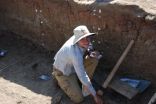Transplant donors and recipients want more information about each others' health
Study's findings challenge current policies on information disclosure
2015-08-14
(Press-News.org) Highlights
Most donors and recipients support swapping health information before kidney transplantation, but there was low interest in sharing social information.
Both donors and recipients wanted the transplant team involved in information disclosure.
Most donors and recipients did not think the recipient had a right to know why a donor was excluded from donating.
Approximately 6,000 living donor kidney transplants are performed annually in the United States.
Washington, DC (August 13, 2015) -- Both donors and recipients want more information about each others' health before participating in transplant surgeries, according to a study appearing in an upcoming issue of the Clinical Journal of the American Society of Nephrology (CJASN). The findings challenge current practices and policies on information disclosure for prospective living kidney donors and their intended recipients..
Patients in need of a transplant may want certain information about a potential living donor before accepting his or her organ. Likewise, a potential donor may want information about an intended recipient before deciding whether to offer the organ. It is mandatory to disclose to a candidate if the donor is at increased risk for hepatitis or HIV, but national and international living donor guidelines either do not address or are vague about what other information can be shared between prospective living donors and transplant candidates, as well as when to make such disclosures and who should make them.
To determine if the current policies about sharing of information in living kidney transplantation meets the needs of donors and recipients, Lainie Friedman Ross, MD, PhD (University of Chicago) and her colleagues surveyed 236 individuals, 160 of whom identified as potential or actual donors and 76 of whom identified as candidate or actual recipients.
Among the major findings:
Overall, 79% of respondents supported providing donors with recipients' general health information that would affect post-transplant health, and 88% supported providing recipients with donors' general health information. Such information might include individuals' status related to smoking, heart health, and kidney function.
There was little interest in sharing social information such as criminal record, sexual orientation, employment status, or religion.
The closer the donor-recipient relationship, the more information donors and recipients were willing to share.
Both donors and recipients wanted the transplant team involved in information disclosure.
More than three-quarters of both donors and recipients did not think the recipient had a right to know why a donor was excluded from donating.
"Our finding that both donors and recipients support greater sharing of health and health-behavior information challenges the current approach to disclosure in organ transplantation. It is also clear that they want the transplant teams involved in these discussions," said Dr. Ross. "The current model of health care decision-making and information disclosure assumes an isolated autonomous individual who makes private health care decisions with his or her own physician, but this fails to capture the fact that donor and recipient outcomes are interdependent. A re-evaluation of current practices and policies should be considered."
INFORMATION:
Study co-authors include Leslie Mataya, Jacqueline Meadow, BA, J. Richard Thistlethwaite, Jr, MD, PhD, Didier Mandelbrot, MD, and James Rodrigue, PhD.
Disclosures: The authors reported no financial disclosures.
The article, entitled "Disclosing Health and Health Behavior Information Between Living Donors and their Recipients," will appear online at http://cjasn.asnjournals.org/ on August 13, 2015.
The content of this article does not reflect the views or opinions of The American Society of Nephrology (ASN). Responsibility for the information and views expressed therein lies entirely with the author(s). ASN does not offer medical advice. All content in ASN publications is for informational purposes only, and is not intended to cover all possible uses, directions, precautions, drug interactions, or adverse effects. This content should not be used during a medical emergency or for the diagnosis or treatment of any medical condition. Please consult your doctor or other qualified health care provider if you have any questions about a medical condition, or before taking any drug, changing your diet or commencing or discontinuing any course of treatment. Do not ignore or delay obtaining professional medical advice because of information accessed through ASN. Call 911 or your doctor for all medical emergencies.
Founded in 1966, and with more than 15,000 members, the American Society of Nephrology (ASN) leads the fight against kidney disease by educating health professionals, sharing new knowledge, advancing research, and advocating the highest quality care for patients.
ELSE PRESS RELEASES FROM THIS DATE:
2015-08-13
Camden and Newark, New Jersey, are perceived as two of the most violent cities in the nation, yet New Jersey's police officers are among the least likely to get shot on the job. Montana, with its serene landscapes and national parks, has among the highest homicide rates for law enforcement officers. Why?
Across all 50 states and the District of Columbia, homicides of police officers are linked to the statewide level of gun ownership, according to a new study published in the American Journal of Public Health. The study found that police officers serving in states with ...
2015-08-13
DALLAS, August 13, 2015 -- Smartphone applications and wearable sensors have the potential to help people make healthier lifestyle choices, but scientific evidence of mobile health technologies' effectiveness for reducing risk factors for heart disease and stroke is limited, according to a scientific statement from the American Heart Association, published in the association's journal Circulation.
The new statement reviewed the small body of published, peer-reviewed studies about the effectiveness of mobile health technologies (mHealth) for managing weight, increasing ...
2015-08-13
At home on the sofa, in a hospital bed, or in a care home: where a death takes place is always recorded on the death certificate. Until now, however, this information has never been collated and evaluated. In an Original Article in the current issue of Deutsches Ärzteblatt International (Dtsch Arztbl Int 112:496-504), Burkhard Dasch and his co-authors analyze for the first time the place of death records for Germany. What they found was that every second person died in a hospital; only one in four died at home.
The study evaluated more than 24 000 death certificates ...
2015-08-13
Marks on two 3.4 million-year-old animal bones found at the site of Dikika, Ethiopia, were not caused by trampling, an extensive statistical analysis confirms. The Journal of Human Evolution is publishing the results of the study, which developed new methods of fieldwork and analysis for researchers exploring the origins of tool making and meat eating in our ancestors.
"Our analysis clearly shows that the marks on these bones are not characteristic of trampling," says Jessica Thompson, an assistant professor of anthropology at Emory University and lead author of the study. ...
2015-08-13
MADISON, Wis. -- Koko the gorilla is best known for a lifelong study to teach her a silent form of communication, American Sign Language. But some of the simple sounds she has learned may change the perception that humans are the only primates with the capacity for speech.
In 2010, Marcus Perlman started research work at The Gorilla Foundation, where Koko has spent more than 40 years living immersed with humans -- interacting for many hours each day with psychologist Penny Patterson and biologist Ron Cohn.
"I went there with the idea of studying Koko's gestures, but ...
2015-08-13
MADISON, Wis. -- The crucial genetic mashup that spawned the yeast that brews the vast majority of beer occurred at least twice -- and both times without human help -- according to a University of Wisconsin-Madison study published Aug. 11 in the journal Molecular Biology and Evolution.
Lager yeast, a hybrid that thrives in cold temperatures, is used in lager beer production, which accounts for about 94 percent of the world's beer.
And while 15th century Bavarian monks invented lager beer, they probably did not deliberately cause the hybridizations detailed by a team ...
2015-08-13
LOS ALAMOS, N.M., August 13, 2015--A team of researchers has discovered a Jupiter-like planet within a young system that could provide a new understanding of how planets formed around our sun.
The new planet, called 51 Eridani b, is the first exoplanet discovered by the Gemini Planet Imager (GPI), a new instrument operated by an international collaboration headed by Bruce Macintosh, a professor of physics in the Kavli Institute at Stanford University. It is a million times fainter than its star and shows the strongest methane signature ever detected on an alien planet, ...
2015-08-13
WASHINGTON - Violent video game play is linked to increased aggression in players but insufficient evidence exists about whether the link extends to criminal violence or delinquency, according to a new American Psychological Association task force report.
"The research demonstrates a consistent relation between violent video game use and increases in aggressive behavior, aggressive cognitions and aggressive affect, and decreases in prosocial behavior, empathy and sensitivity to aggression," says the report of the APA Task Force on Violent Media. The task force's review ...
2015-08-13
Recent Massachusetts General Hospital (MGH) investigations into the neurobiology underlying the effects of general anesthesia have begun to reveal the ways different anesthetic agents alter specific aspects of the brain's electrical signals, reflected by EEG (electroencephalogram) signatures. While those studies have provided information that may lead to improved techniques for monitoring the consciousness of patients receiving general anesthesia, until now they have been conducted in relatively young adult patients. Now a series of papers from MGH researchers is detailing ...
2015-08-13
You've heard that romance starts in the kitchen and not in the bedroom. Well, researchers at Drexel University finally have the science to support that saying - but not the way you might think.
In a new study published online in the journal Appetite, researchers found that women's brains respond more to romantic cues on a full stomach than an empty one. The study explored brain circuitry in hungry versus satiated states among women who were past-dieters and those who had never dieted.
The study's first author Alice Ely, PhD, completed the research while pursuing a ...
LAST 30 PRESS RELEASES:
[Press-News.org] Transplant donors and recipients want more information about each others' health
Study's findings challenge current policies on information disclosure

